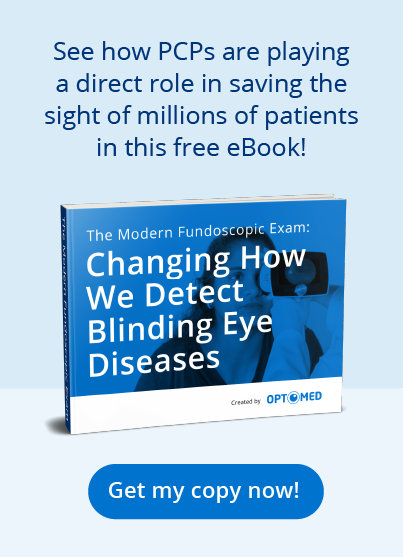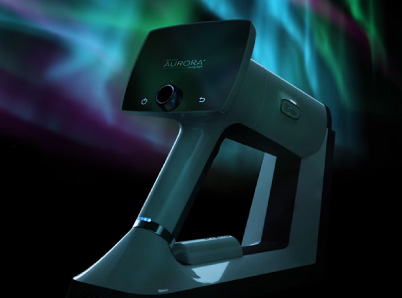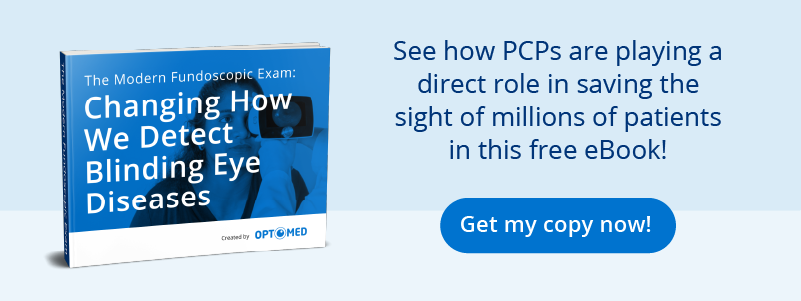Primary care physicians (PCPs) are busy people. On average, a primary care doctor or practitioner works over fifty hours per week, seeing around twenty patients per day. That high volume means that most PCPs only have a few minutes of concentrated, one-on-one time with each patient. In order to maximize the benefits of that time, PCPs want effective, helpful solutions that can make their offices, practices, and methods more efficient. From handling paperwork and billing to treating patients and even doing an eye screening, having the right equipment is an essential component of providing good healthcare.
Eye Health and the Direct Ophthalmoscope
Assessing and treating patient health from head to toe means proper screenings of all major bodily systems. Caring for the eyes in particular is a delicate and sometimes difficult task, especially for non-eye-care professionals, as it involves a careful examination of each retina, which is only visible with the help of the proper equipment.
The standard instrument for viewing the retina is the direct ophthalmoscope. But many healthcare professionals struggle to use it effectively, for several reasons.
First, the direct ophthalmoscope is used in very close quarters, with the patient’s eye on one side and the healthcare professional’s eye on the other side. This is an issue during the COVID-19 pandemic, as communities must effectively practice social distancing.
Another issue involves mydriatic drops. To use the direct ophthalmoscope as effectively as possible, the healthcare professional must dilate the patient’s eyes. Many patients dislike this procedure and avoid it, which increases the probability of an incomplete or incorrect eye screening and diagnosis.
Given these challenges, it’s not surprising that recent studies have demonstrated that up to 40% of patients screened with a direct ophthalmoscope are misdiagnosed, even when screened under ideal conditions by trained ophthalmologists.
The Benefits of an Effective Eye Screening
While most people probably think of eye health in terms of improving vision with glasses or contacts, a thorough eye screening can have a more significant impact than simply generating a prescription for corrective lenses. Effective eye screenings can detect serious diseases, such as glaucoma, diabetic retinopathy, giant cell arteritis, and vascular issues.
While eye care professionals typically do these screenings, many patients with adequate vision don’t get regular eye exams due to the extra costs of both time and money. However, if PCPs could perform eye screenings as a part of routine wellness checks, patient outcomes could drastically improve.
Changing for the Better
In past decades, alternative retinal imaging devices were often too expensive and inconvenient for widespread use at the primary care level. Large, bulky, and mounted or fixed in place, these retinal cameras also required considerable training on the part of the practitioner.
Today, fundus cameras like the Optomed Aurora are a more attractive option. Not only are they highly accurate, but they’re also handheld and portable, making it possible for PCPs to set up flexible screening areas or go directly to patients.
These cameras are also affordable and easy to use, with no expensive installation or training necessary. Non-eye-care professionals can easily operate them, so doctors, nurses, and other personnel can perform a screening. Once the retinal images have been taken, they can be input wirelessly into existing EHR systems. The Optomed Aurora can also be integrated with AI technology software.
Finally, the Optomed Aurora produces high-resolution digital images with a 50-degree field-of-view, all without needing to dilate the eyes. This makes the Aurora a great choice for screening patients who are uncomfortable with mydriatic drops. Also, its convenient handheld design makes it easier to maintain social distance between the patient and the practitioner.
Is the Optomed Aurora Right for Your Practice?
To best serve their patients’ needs, PCPs are increasingly aware of the importance of thorough screenings, including those of the eyes. While the direct ophthalmoscope is a widely used and helpful tool, technologies like the Optomed Aurora fundal camera are changing how patients and practitioners can care for the eyes and overall health.
Here at Optomed, our mission is to help save the vision of millions of people. By integrating our software and artificial intelligence solutions with our camera, we enable eye screening for everyone, wherever they are. To see how we can equip you to save the sight of more patients, schedule a free consultation today!



